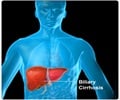New research from the Keck School of Medicine may help prevent damage to the liver caused by drugs like acetaminophen and other stressors.

However, metabolized by the liver, acetaminophen is the most common cause of drug-induced liver disease and acute liver failure in the United States and United Kingdom. Tylenol's maker announced in July that it was lowering the maximum recommended daily dosage to 3,000 milligrams to help prevent accidental overdoses.
Doctors at the Keck School of Medicine of USC have identified a protein on the mitochondria of liver cells in mice that, when silenced, protects against liver toxicity usually associated with excess doses of acetaminophen.
They found that the protein Sab, or SH3-domain binding protein 5, binds with the enzyme JNK (c-Jun N-terminal kinase). JNK regulates cellular metabolism and survival in response to stress, protecting cells when activated for brief intervals. However, JNK also kills cells when activated for prolonged periods of time.
"Because the short-term activation of JNK is associated with cell survival, Sab is potentially a better target than inhibiting JNK, which could have adverse effects," said Neil Kaplowitz, M.D., the study's lead investigator and professor of medicine at the Keck School.
Researchers have long believed that acetaminophen was converted into toxic metabolites that, in excess, overwhelm liver cells, causing them to die. In a 2008 study, Kaplowitz, who holds the Keck School's Thomas H. Brem Chair in Medicineand Veronica P. Budnick Chair in Liver Disease, and other USC colleagues turned that theory around — they found that it was not the metabolite, but rather the sustained activation of JNK that harmed the organ. By inhibiting JNK activation in mice, injury to the liver caused by large doses of acetaminophen was avoided.
Advertisement
"We proved that the sustained activation of JNK targets Sab and is a requirement for the subsequent death of liver cells," Kaplowitz said. "We then showed that it is a universal effect. Developing a drug to protect against cell death, one could argue to target JNK — but that's a double-edged sword. This provides a whole new target: Create a drug that inhibits the interaction between JNK and Sab."
Source-Eurekalert














